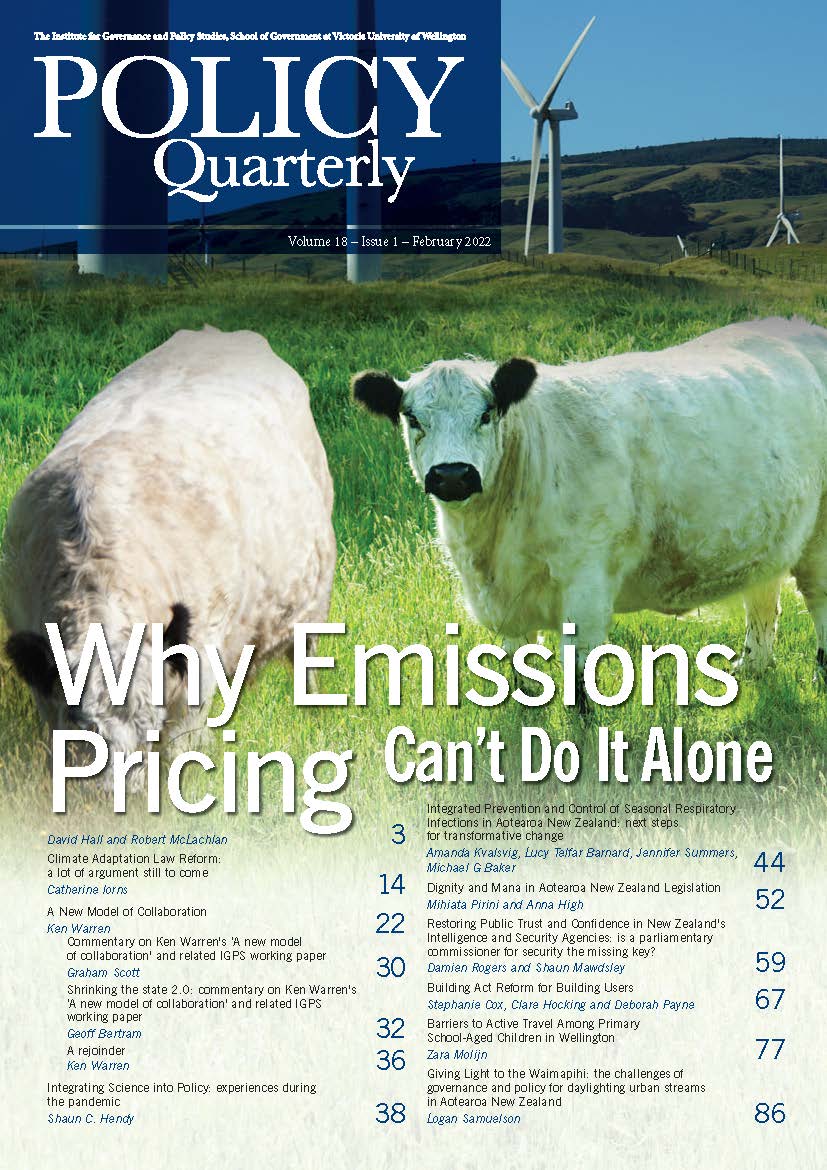Why Emissions Pricing Can’t Do It Alone
DOI:
https://doi.org/10.26686/pq.v18i1.7496Keywords:
environmental economics, emissions trading, climate policy, climate justice, just transitionsAbstract
This article explores whether emissions pricing is sufficient to achieve the low-emissions transition in Aotearoa New Zealand. It draws on a critical review of the international literature on emissions pricing, policy interactions and political economy to make three broad arguments. First, that emissions pricing alone cannot be expected to induce the necessary levels of behaviour change and technological transition in the urgent time frame required. Second, non-pricing policies can deliver emissions reductions, even within the context of emissions trading under a volume cap. Third, even if emissions pricing could induce sufficient change, there are political economy constraints on reaching the adequate price in a feasible and equitable way. Consequently, we argue that the weight of evidence lies with utilising emissions pricing as part of a policy mix.
Downloads
Downloads
Published
Issue
Section
License
Permission: In the interest of promoting debate and wider dissemination, the IGPS encourages use of all or part of the articles appearing in PQ, where there is no element of commercial gain. Appropriate acknowledgement of both author and source should be made in all cases. Please direct requests for permission to reprint articles from this publication to Policy-Quarterly@vuw.ac.nz.



